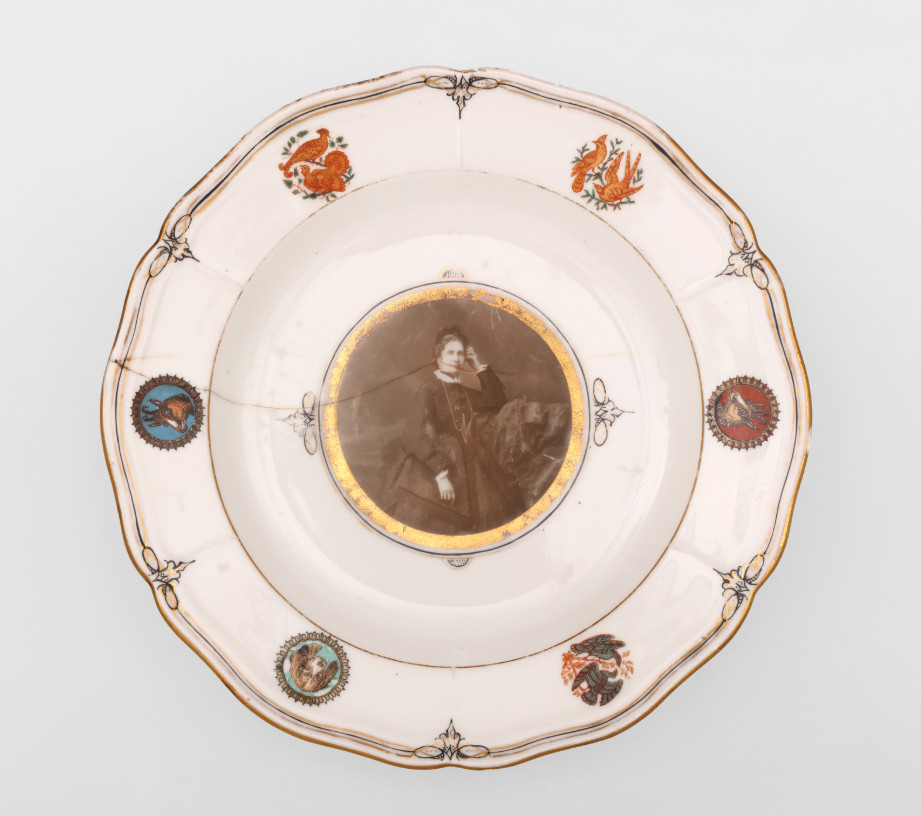Ferenc Veress (1832-1916)
1878Bowl with a portrait of Róza Jókainé Laborfalvi
Bowl, photoceramic
24 cm (diameter) 8.3 cm (height)
Hungarian National MuseumTF / portrait group photo, Inventory number: 99,862
Place of origin/creation: Cluj-Napoca
The rim of the bowl features six medallions with animal motifs and a black/gold stripe.
The photograph of Róza Jókainé Laborfalvi. is known as a cabinet picture from 1871.
Róza Jókainé Laborfalvi (born Judit Benke de Laborfalva; 1817–1886) was one of the most celebrated and influential Hungarian actresses of the 19th century. She was a leading figure in the Romantic era of Hungarian theatre and the wife of the acclaimed novelist Mór Jókai.
Theatrical Career
Laborfalvi began her career in 1833 and quickly rose to prominence. In 1837, she became a founding member of the Hungarian National Theatre in Pest, which would remain her artistic home for the rest of her life.
She was renowned for her powerful and passionate performances, particularly in tragic roles. Her most famous portrayal was that of Gertrude in Shakespeare's Hamlet, a role she defined for a generation of Hungarian theatergoers. Her acting style was emblematic of the grand, emotional delivery of the Romantic school.
Marriage and Scandal
In 1848, she married the novelist Mór Jókai, who was eight years her junior. Their marriage caused a major social scandal, not only because of the age difference but also because Laborfalvi had an illegitimate teenage daughter, Róza Benke. The union was vehemently opposed by Jókai's mother and many of his friends, including the revolutionary poet Sándor Petőfi.
Despite the tumultuous start, their marriage proved to be a long and supportive partnership that lasted until her death. Laborfalvi was often the first reader and critic of her husband's manuscripts and served as a muse for many of his female characters.
LL/131090